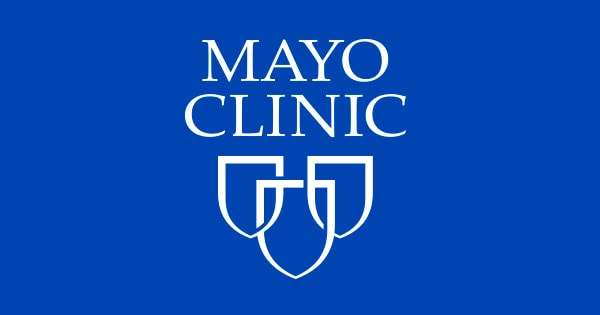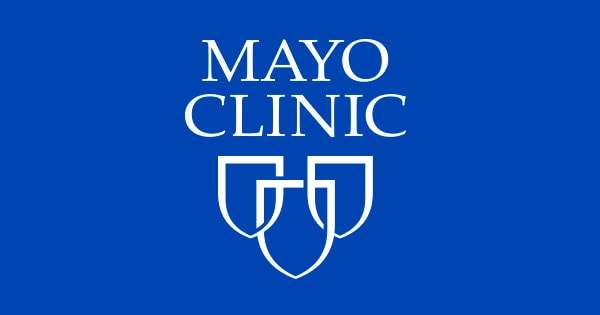 Painful emotions or unpleasant thoughts can be extremely hard to sit with and accept.
Painful emotions or unpleasant thoughts can be extremely hard to sit with and accept.
Often, our knee-jerk reaction is to avoid these experiences or try to get rid of them completely, which most of the time, only makes us feel worse.
Acceptance and Commitment Therapy (ACT) aims to help people develop a better relationship with difficult thoughts, feelings, and internal experiences and to encourage them to commit to living their life to the fullest (Harris, 2011).
If you want to become an ACT practitioner, you’ll be glad to know there are lots of courses available to you but currently no official certification route. This article provides a list of some of the best ACT training courses out there right now to help you weigh your options.
Before you continue, we thought you might like to download our three Self-Compassion Exercises for free. These detailed, science-based exercises will not only help you increase the compassion and kindness you show yourself, but also give you the tools to help your clients, students, or employees show more compassion to themselves.
How to Become an ACT Practitioner
A fundamental goal of Acceptance and Commitment Therapy is to cultivate a meaningful life in alignment with your values while accepting that suffering is a normal and natural part of this (Harris, 2011).
Mindfulness skills are believed to be centrally important in ACT to help clients manage difficult thoughts and feelings, and decrease the impact these experiences have on their lives (Harris, 2011).
There’s currently no official process to become a certified ACT practitioner. The Association for Contextual Behavioral Science (ACBS), an international community for ACT, decided against a certification process in the interests of avoiding a “hierarchical and closed process which would be antithetical to our values” (Long, n.d.).
Instead, the ACBS hopes to nurture an “open, self-critical, mutually supportive community which, working together, builds a progressive psychology more adequate to the challenges of human suffering” (Long, n.d.). So, if you’re a health professional wanting to deliver ACT, you have your pick of a large range of training options.
Of course, to deliver psychological therapy, you’ll need to gain the appropriate training, certification, and licensure (e.g., as a social worker, psychologist, or counselor) to practice in your region.
The ACBS also emphasizes that in addition to training, learning about and honing your skills in ACT are supported by (Long, n.d.):
- Reading ACT books
- Attending peer consultation groups
- Attending academic training
- Attending the ACBS Annual World Conference
- Watching therapy videos
12 Best ACT Programs & Courses
There is an abundance of ACT courses to choose from, and because there’s no red tape around certification, you have the freedom to pick one that most aligns with your preferences, budget, and schedule.
To make it a little easier to find the best ACT training programs and courses, we’ve listed some of our top picks that are designed and delivered by experts in Acceptance and Commitment Therapy, most of which are offered online.
Praxis

Praxis offers a range of evidence-based and on-demand training courses for students looking to learn more about ACT or develop their skills as practitioners working with specific clinical groups.
Find out more on their website.
1. ACT Immersion

Designed and delivered by Dr. Steven Hayes, the founder of ACT, this is an introductory course that offers a deep dive into the processes and principles of ACT.
A significant part of the course content was created from recordings of a live three-day ACT workshop with 30 mental health professionals, so you can really get a feeling for how ACT works in action.
There are 10 modules in the course, which amounts to 24 continuing education hours. Some of the module topics include understanding the six core human yearnings, moving from psychological inflexibility to flexibility, and the foundation of our sense of self. As well as the course material, you’ll get access to audio exercises, Q&A videos, and real-life sessions.
Find out more on their website.
2. ACT in Practice

This is another course from Dr. Hayes and aims to help clinicians with a firm understanding of ACT to make the transition from theory to practice.
In this 10-module self-paced course, you’ll learn about a process-based framework for delivering ACT and watch demos of role-play and real-play sessions.
Some of the module topics include ‘Functional Analysis,’ ‘Treatment Planning,’ and ‘Present Moment and Self-As-Context.’
You’ll also get access to helpful resources like an ACT Assessment Toolkit and an ACT Rating Scale Training Manual. Completion of the course counts as 23.5 hours of continuing education.
Find out more on their website.
3. Focused ACT for Brief Interventions
This course is delivered by leading experts in ACT Dr. Kirk Strosahl and Dr. Patti Robinson. Dr. Strosahl was also a cofounder of ACT. Together, the trainers have written some of the most influential books in ACT and teach Focused Acceptance and Commitment Therapy (FACT) to health professionals around the globe.
This six-module course consists of video instruction, practical exercises, teletherapy role-play, and written materials. The first three modules walk you through how to conduct the initial FACT session. Module 4 looks at follow-up sessions, Module 5 focuses on metaphors and how to use them in therapy, and Module 6 guides you through how to work with complex clients and support your resilience as a therapist.
Find out more on their website.
Psychwire
Psychwire offers numerous online courses in ACT delivered by Dr. Russ Harris, a leading ACT expert and author of the bestselling book The Happiness Trap.
1. ACT for Beginners
This 6-week, 16-hour course is suitable for health professionals and counts as 16 continuing education credits.
Course modules include an introduction to ACT, The Art & Science of Cognitive Defusion, Acceptance and Self-Compassion, and Values and Committed Action. You’ll learn how to use ACT to deal with the strains of challenging clients and create a better relationship with your own thoughts and feelings.
Find out more on their website.
2. ACT for Depression and Anxiety
This 6-week, 16-hour course is suitable for health professionals looking to enhance their ACT skills when working with people with depression and anxiety disorders.
The course expects learners to have more than a beginner’s knowledge of ACT, so you’ll need to complete the Beginners Course, go to an introductory two-day ACT training, or work through a beginner-level ACT textbook.
The course curriculum covers an extensive range of topics and issues unique to anxiety and mood disorders. Some areas covered include worrying, the difference between mindfulness and relaxation, fear versus anxiety, exploring the roots of anxiety, and working on values with clients who claim to have none.
Find out more on their website.
3. Trauma-Focused ACT
This advanced-level course is highly skills focused. Over six weeks (16 hours), you’ll learn a compassion-based, exposure-centered approach to delivering ACT for trauma-related issues, whether acute, chronic, simple, or complex.
You’ll explore ways of addressing key issues associated with trauma, such as hyperarousal, flashbacks, shame, and a fractured sense of self.
The course is open to health professionals. As with the course above, you’ll be expected to have a solid understanding of ACT before joining, and the same prerequisites apply.
Find out more on their website.
4. ACT as a Brief Intervention
This six-week (eight-hour) course is aimed at health professionals who are frequently faced with the challenge of making the most out of very limited time with clients.
This is an advanced-level course, and the same pre-course requirements apply as the two courses above.
The training covers the principles and practice of the FACT model. You’ll learn skills and strategies to deliver ACT efficiently, like focused interviewing skills and rapid case formulation, and understand how to deliver an effective ACT intervention in 10 minutes or less.
Find out more on their website.
PESI

PESI is a nonprofit continuing education organization offering a range of courses in ACT.
1. 2-Day Intensive ACT Training
This live seminar held in Illinois, which can be attended via a streamed webinar, is delivered by Dr. Daniel Moran, an expert and trainer in ACT. In this workshop, you’ll cover the core principles and processes of ACT.
The course amounts to around 12 hours of continuing education. Among many learning objectives, you’ll be equipped to use the six core processes of ACT to enhance clients’ psychological flexibility and apply ACT techniques to address a range of psychological disorders.
Find out more on their website.
2. ACT Intensive Online Course
This course is delivered by Dr. Steven Hayes and Dr. Daniel Moran and features in-session demonstrations from Hayes and other master ACT clinicians.
There are six modules, which amounts to 23.75 hours of continuing education. Some module topics include ‘Control and Acceptance,’ ‘Cognitive Defusion,’ ‘Values and Action,’ and ‘Psychological Flexibility.’
Find out more on their website.
3. Experiential Intensive ACT Training
This 12-hour course (digital seminar) is delivered by ACT experts Drs. John and Jamie Forsyth. The course includes an interactive workshop using demonstrations, experiential exercises, clinical worksheets, and practical tools.
Find out more on their website.
Portland Psychotherapy

Portland Psychotherapy has bountiful ACT resources, including a peer consultation group and regular ACT training workshops.
On their website, you can find audio files, meditations, and exercises for your sessions. Check out their website for upcoming ACT training dates.
Find out more on their website.
Association for Contextual Behavioral Science

Finally, the ACBS has a peer review process for expert ACT trainers in the community to make it easier for people to locate high-quality ACT training (ACBS, n.d.).
This is not an accreditation process by any means, nor does the process examine someone’s competency as an ACT practitioner. Rather, this peer review process focuses only on the person’s delivery of professional ACT training and is completely voluntary for trainers.
If you’re looking to find ACT trainers to provide training, consultation, or coaching, the ACBS website is a good place to start. You can contact the trainers via the ACBS website.
Find out more on their website.
Online Training: 5 Virtual Courses to Consider
Many of the courses we’ve covered have virtual learning options, so be sure to check them out too. If you haven’t found the right one for you, here are a couple more online training options to consider.
The Association for Psychological Therapies (APT), ACT Essentials

This three-day course is suitable for clinically skilled professionals seeing patients in treatment settings or teams working in inpatient or community settings.
Completing the course will gain you APT’s Level 1 accreditation. You can complete the course in a self-paced way or via a live course on Zoom.
Although this is an ‘essentials’ course, you’ll cover a lot of ground. By the end, you’ll be able to start using ACT approaches with your clients. You’ll also gain personal rewards that will help you help others, such as becoming more in touch with your values and being better able to accept your thoughts and feelings.
Find out more on their website.
Association for Advanced Training in the Behavioral Sciences, ACT Made Simple

This course offers a great introduction to ACT and counts as 11 continuing education credits.
Among many learning objectives, you’ll explore the theory behind the ACT model, understand how to deliver experiential therapy, and be able to assess the core processes of ACT and apply them in your practice.
As part of the course, you’ll need to purchase the course author’s book separately, ACT (Acceptance and Commitment Therapy) Made Simple, by Dr. Russ Harris.
Find out more on their website.
Udemy, Acceptance and Commitment Therapy

This introductory ACT course is very kind on the wallet and is open to anyone with an interest in psychology, therapy, and ACT, with a general idea of what psychotherapy and counseling involve.
The course includes 35 lectures (nearly 7 hours in total). Some module titles include, ‘Core Processes in ACT, ‘Positive Psychology and The Happiness Trap’, and ‘When Emotions Don’t Want to Disappear’.
The course is led by Motivational Psychologist and Life Coach, Elmira Strange.
Find out more on their website.
Psychotherapy Academy, Demystifying ACT: A Practical Guide for Therapists

This self-paced online course is led by ACT expert Dr. DJ Moran.
There are five modules that add up to five continuing education credits. Each module comes with a video offering practical take-home tips. You’ll also get access to audio interviews with Dr. Moran where he talks through some real-life clinical cases.
Find out more on their website.
The Affinity Centre, An Introduction to Acceptance and Commitment Therapy

This is a very reasonably priced course from United Kingdom Council for Psychotherapy-registered psychotherapist Ian Tomlinson, who is both an ACT practitioner and trainer.
The course would suit anyone interested in learning more about ACT and includes exercises students can apply to themselves. There are 11 modules, including topics like ‘How ACT is different,’ ‘The ACT Hexaflex,’ and ‘Self as Context.
Find out more on their website.
PositivePsychology.com’s Relevant Resources
If you’re already delivering Acceptance and Commitment Therapy and looking for some inspiration for your sessions, why not use some of our ACT worksheets and exercises below?
- Exploring Willingness and Commitment
This exercise combines techniques from both ACT and Rational Emotive Behavior Therapy (REBT) to help clients select a personal value and commit to one practical action they can take toward living in line with this value. - Personal Values Worksheet
This worksheet helps clients explore what they view as meaningful and important, serving as a basis to determine how they might focus their energy and time. - Values and Problems
This worksheet invites clients to reflect on the problematic thoughts and behaviors that contribute to their struggles and consider how they might replace these with value-driven goals and actions. - Commitment, Obstacles, and Strategies Worksheet
This three-part worksheet helps clients identify a life goal related to personal values, consider potential obstacles to achieving this goal, and develop a plan to strengthen goal commitment. - 17 Mindfulness & Meditation Exercises
If you’re looking for more science-based ways to help others enjoy the benefits of mindfulness, check out this collection of 17 validated mindfulness tools for practitioners. Use them to help others reduce stress and create positive shifts in their mental, physical, and emotional health.
A Take-Home Message
For many people, learning to be at peace with painful thoughts and feelings can be extremely challenging and too difficult to contemplate doing alone.
ACT is an evidence-based and highly effective form of talking therapy that can help people get on better terms with their thoughts and feelings and help them focus their commitment and energy toward living a full and meaningful life.
Training in ACT is currently a very open and inclusive process for health professionals, as there is no official certified training route. There’s an abundance of online training courses available, which means you can typically learn at your own pace around your other commitments.
If you’re ready to embark on ACT training in the near future, we hope this article has provided some useful food for thought and wish you all the best in your next learning adventure.
We hope you enjoyed reading this article. Don’t forget to download our three Self-Compassion Exercises for free.
References
- Association for Contextual Behavioral Science. (n.d.). Becoming an ACT trainer. Retrieved from https://contextualscience.org/training_standards
- Harris, R. (2011). Embracing your demons: An overview of acceptance and commitment therapy. Psychotherapy.net. Retrieved from https://www.psychotherapy.net/article/Acceptance-and-Commitment-Therapy-ACT
- Long, D. (n.d.). ACT certification. Association for Contextual Behavioral Science. Retrieved from https://contextualscience.org/act_certification




